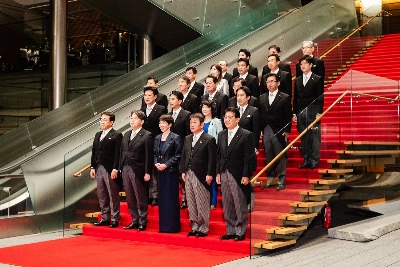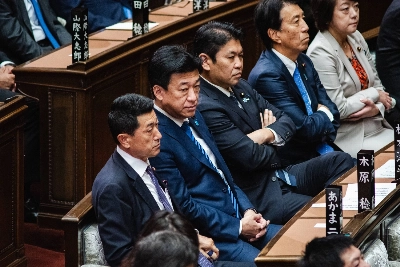In elucidating the cultural context, symbolism and social implications of the world's most popular game as it has evolved from irrelevance to obsession and beyond in Japan, Sebastian Moffett has done for Japanese soccer what Robert Whiting did so admirably for Japanese baseball. Whether the World Cup mania has you glued to the tube or trying to escape the hoopla, this is a book full of insights on contemporary Japanese society refracted through the prism of sports, shedding light in unexpected ways on local icons, taboos, myths, fading verities and assumptions. It is also a well-written, intriguing yarn for that summer reading list.
Moffett makes a provocative case for soccer reflecting an ongoing social revolution in Japan. The attitudes and inclinations associated with the postwar corporate-centered world of conformity, personal sacrifice and relentless drudgery -- in short, the dour system that spawned the economic miracle -- are increasingly seen as major obstacles to Japan's rejuvenation. The "salaryman syndrome," rote repetition, micromanaging and so on are part of the system that soured. In Moffett's view, baseball has been so popular in Japan because it provides a reassuring mirror image for middle-aged male fans. He writes, "The players wore grim, at-work expressions and short black hair, much like the office workers who went to see them play. In short, baseball was a reflection of the corporate way of life that had dominated Japan since the war."
In contrast to the slow, steady and regimented way of baseball, soccer offers something flamboyant and subversive to the established order. In embracing its culture, Japanese fans are embracing something quintessentially international, adopting and adapting global riffs that resonate with a youth looking for something more interesting and cool than the "national sport." Moffett writes, "Fresh, young and international, the J. League was like a harbinger of a new era."


















With your current subscription plan you can comment on stories. However, before writing your first comment, please create a display name in the Profile section of your subscriber account page.